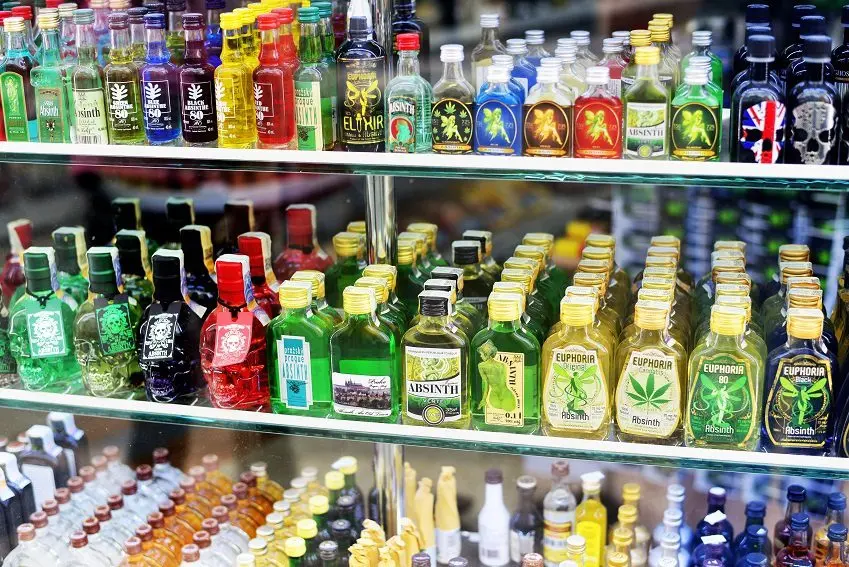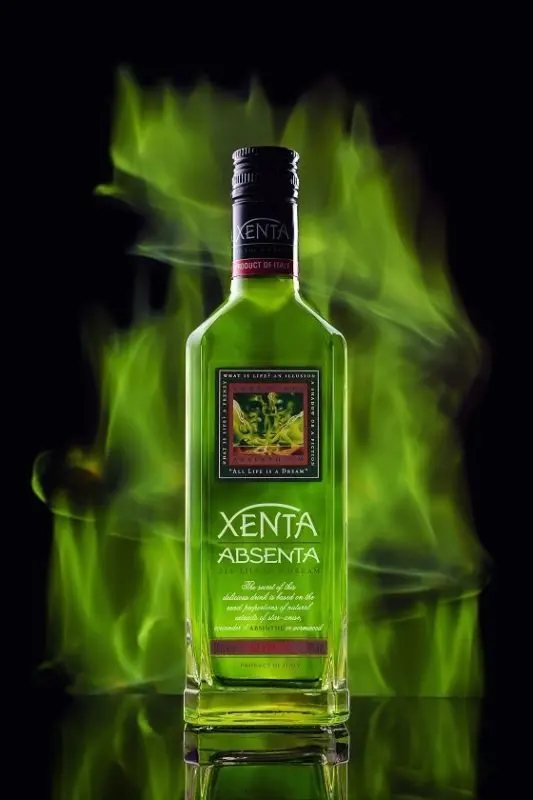Absinthe experienced a rebirth in the 1990s, when the myths about the hallucinogenic properties of the “green fairy” were finally dispelled. In the following decade, state bans on the production and sale of herbal tincture were lifted, after which there was a sharp increase in demand, fueled by legends and the drink’s bad reputation. Currently, absinthe is produced in twenty countries of the world, and the best samples of their products are annually presented by companies at international competitions.
International Absinthe Ranking
The competition of the most authoritative edition of the industry The Spirits Business several years ago singled out absinthe in a separate category Absinthe Masters. With growing consumer interest in national alcohol, niche drinks with limited markets began to hold a general competition called Specialty Masters.
In 2019, the winner was the Scottish Loch Ness Absinthe Blanche based on wormwood, juniper and mint, harvested on the estate of the distillery owners. Water for the plant comes from a stream that flows into Loch Ness. Absinthe in the style of blanche (white) with a strength of 53% produced in limited quantities. Experts noted the balanced taste of the drink, where anise harmoniously combines with the freshness of citrus fruits.
A year earlier, the champion title was won by Meanie Absinthe from a private distillery in the city of Delft in the Netherlands, which produces craft alcohol. White absinthe captivated the judges with its delicate aroma and grassy taste with hints of anise and coriander. Despite the strength of 68 degrees, the drink is devoid of alcohol sharpness and does not require the addition of water.

London Spirits Competition in 2019 awarded the first place and the honorary title of Best In Show to the French Parisienne Absinthe Supérieure. La Fée began producing the drink in 2000, immediately after the ban was lifted. Absinthe belongs to the class Verte (green), contains nine different herbs and is distinguished by a rich bouquet with notes of anise, white pepper, citrus and thyme.
Parisienne was the only brand to win an award at the Ultimate Spirits Challenge 2019, held in New York, where experts gave absinthe 87 points. The previous year, with a high 97 points and an exceptional recommendation from the judges, Larusée Absinthe Verte, with mint, fennel and tarragon flavors and a zesty taste of herbs and spices, received the Larusée Absinthe Verte.
Larusée is made in France according to a 1900 family recipe based on eight plants that are macerated for two months. The drink is filtered in the traditional Swiss way – through paper and wool. Absinthe was also awarded a gold medal at the 2018 World Spirits Competition in San Francisco.
Absinthe quality rating in Russia
Russians first tried absinthe only in the early 1990s. The myths about thujone and the hallucinogenic effects associated with it attracted young people, and in the early years the drink was very popular in the country. Over time, curiosity was satisfied, and now absinthe is in demand mostly by lovers of rare alcohol and cocktails.
Most popular brands:
- Xenta Absenta, 70% – products of the Italian company Torino Distillati. The brand was one of the first to appear in the country and is well known to Russian buyers. The manufacturer produces three types of absinthe, which differ in the intensity of the anise component.
- King of Spirits, 70% – connoisseurs of the “green fairy” prefer the Czech brand. The drink was created according to the recipe of the eighteenth century and is very close to the classic French absinthe with rich herbal tones. The most popular variety is Gold, containing 100 mg of thujone per liter.
- Staroplzenecky Absinth, 70% – emerald green absinthe from the Czech Republic is made according to the recipe of the time of Napoleon Bonaparte. Wormwood root is added to the composition, from which the bitterness becomes more pronounced. Thujone in the drink is present in an amount of 10 mg per liter.
- La Fee Hypno, 70% – produced in the Czech Republic, it is preferred by lovers of classic absinthe with rich wormwood bitterness. The taste changes when water is added – anise notes fade into the background, giving way to coriander.
- Fruko Schulz, 70% is a budget brand of absinthe. The plant in the Czech Republic is owned by the Russian company Ladoga. In the taste of the drink, anise sweetness outweighs bitterness, and the herbal bouquet is not as rich as in more expensive varieties.

It is difficult to determine the best absinthe among the variety of brands, it all depends on personal tastes and preferences. Due to the high strength in its pure form, the “green fairy” is rarely drunk, and most brands of the mid-price segment with a low content of thujone are suitable for cocktails.









